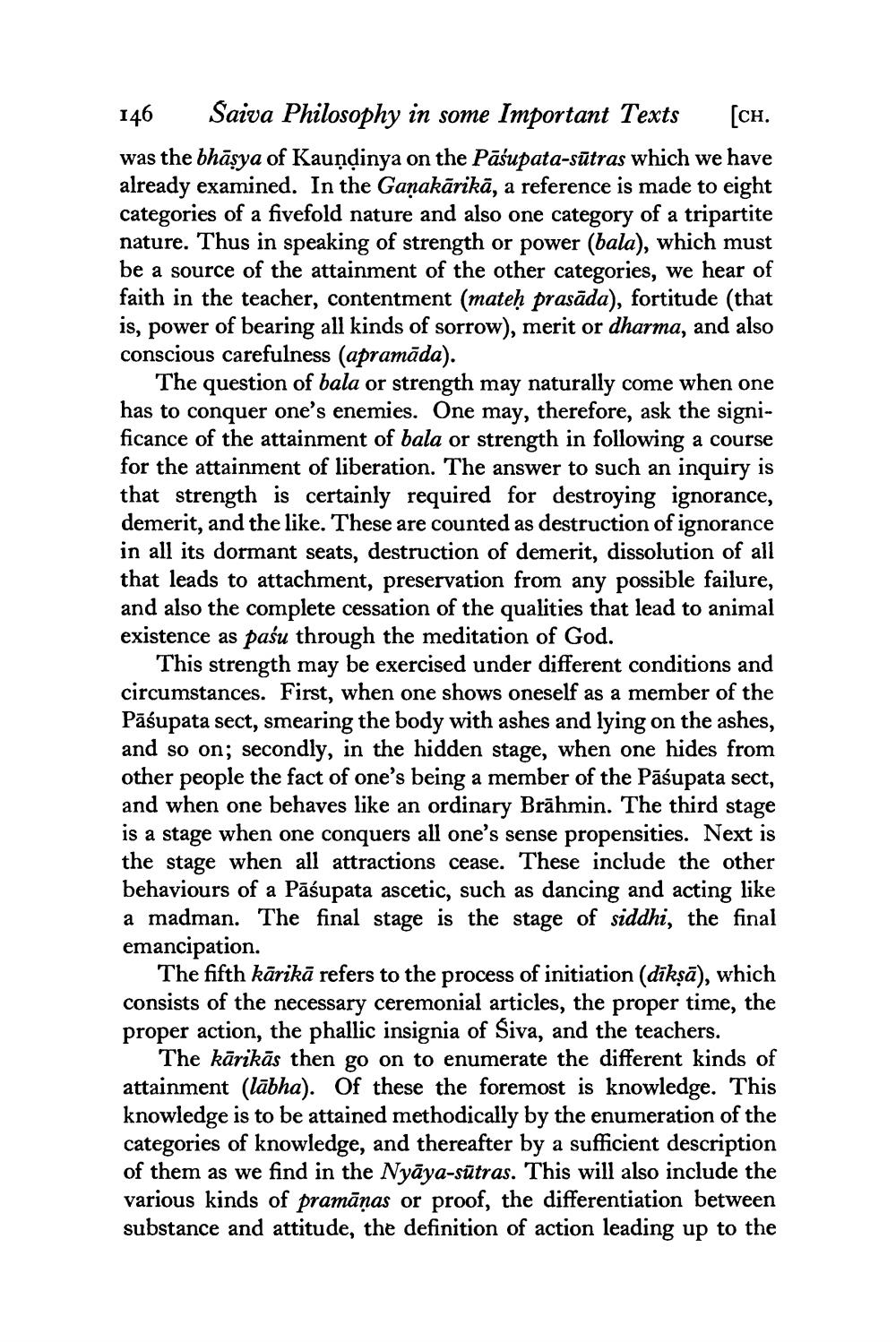________________
146 Saiva Philosophy in some Important Texts [cH. was the bhāsya of Kauņdinya on the Pāšupata-sūtras which we have already examined. In the Ganakārikā, a reference is made to eight categories of a fivefold nature and also one category of a tripartite nature. Thus in speaking of strength or power (bala), which must be a source of the attainment of the other categories, we hear of faith in the teacher, contentment (mateḥ prasāda), fortitude (that is, power of bearing all kinds of sorrow), merit or dharma, and also conscious carefulness (apramāda).
The question of bala or strength may naturally come when one has to conquer one's enemies. One may, therefore, ask the significance of the attainment of bala or strength in following a course for the attainment of liberation. The answer to such an inquiry is that strength is certainly required for destroying ignorance, demerit, and the like. These are counted as destruction of ignorance in all its dormant seats, destruction of demerit, dissolution of all that leads to attachment, preservation from any possible failure, and also the complete cessation of the qualities that lead to animal existence as pašu through the meditation of God.
This strength may be exercised under different conditions and circumstances. First, when one shows oneself as a member of the Pāśupata sect, smearing the body with ashes and lying on the ashes, and so on; secondly, in the hidden stage, when one hides from other people the fact of one's being a member of the Pāśupata sect, and when one behaves like an ordinary Brāhmin. The third stage is a stage when one conquers all one's sense propensities. Next is the stage when all attractions cease. These include the other behaviours of a Pāśupata ascetic, such as dancing and acting like a madman. The final stage is the stage of siddhi, the final emancipation.
The fifth kārikā refers to the process of initiation (dikṣā), which consists of the necessary ceremonial articles, the proper time, the proper action, the phallic insignia of Siva, and the teachers.
The kārikās then go on to enumerate the different kinds of attainment (lābha). Of these the foremost is knowledge. This knowledge is to be attained methodically by the enumeration of the categories of knowledge, and thereafter by a sufficient description of them as we find in the Nyāya-sūtras. This will also include the various kinds of pramāṇas or proof, the differentiation between substance and attitude, the definition of action leading up to the




